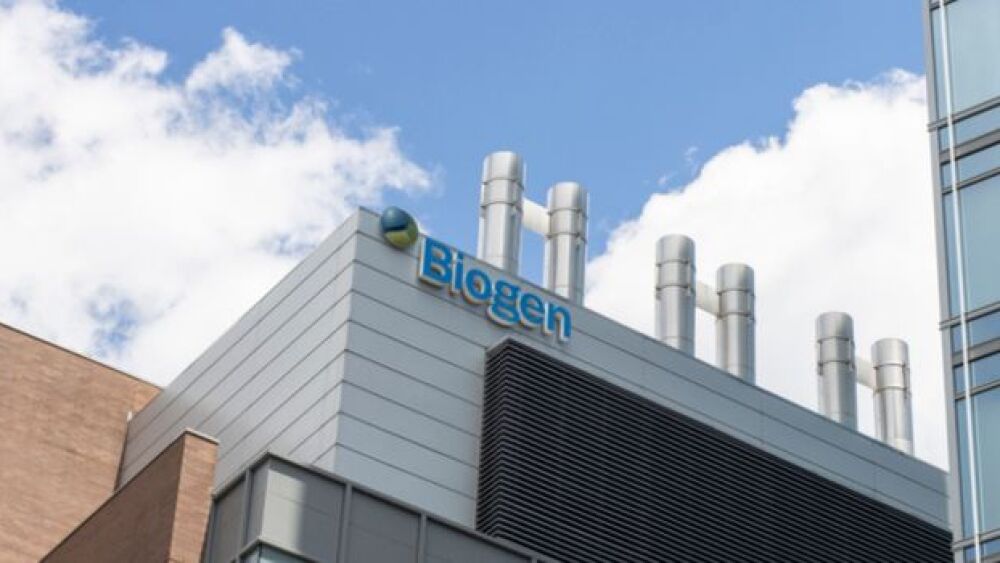The company on Wednesday said it is ending all development and commercialization activity for its Alzheimer’s disease drug Aduhelm to focus on Leqembi with partner Eisai.
Pictured: Biogen Cambridge/iStock, hapabapa
Biogen announced Wednesday it is discontinuing the development and commercialization of its Alzheimer’s disease drug Aduhelm to focus on Leqembi, the first anti-amyloid beta treatment to receive FDA traditional approval.
Positioned as a realignment of resources, Biogen is reprioritizing its Alzheimer’s franchise away from Aduhelm to advance Leqembi as the company looks to accelerate development of potential new treatment modalities.
“We plan to further advance the launch of Leqembi, together with Eisai, and continue to bolster innovation with the development of the other assets in our pipeline,” Biogen CEO Christopher Viehbacher said in a statement.
As of Wednesday’s announcement, sales of Aduhelm will be discontinued and a post-approval study—requested by regulators to confirm benefit—will be terminated.
Biogen partnered with Eisai on both drugs. Instead of sharing global profits and losses on Aduhelm, the duo’s collaboration pact was changed in March 2022 to give royalties to Eisai on net sales.
In January 2023, Biogen unsuccessfully sought out a partner or external financing options to continue R&D efforts for Aduhelm.
Then, in the fourth quarter of 2023, Biogen recorded a one-time $60 million charge for close out costs from the Aduhelm program. The company has terminated the license for aducanumab and rights for the drug will revert to its original discoverer, Neurimmune.
Aduhelm was one of the most controversial drug approvals by the FDA in recent memory. The regulator sidestepped its expert advisers who didn’t believe the clinical trials proved effectiveness and approved the drug anyway. An 18-month congressional investigation also found the FDA did not follow its own guidance, collaborating with Biogen before its approval.
In July 2023, Eisai and Biogen’s Leqembi won full FDA approval as the first anti-amyloid antibody for Alzheimer’s disease (AD). It was also the first disease-altering drug for AD to be granted traditional approval. A Phase III study of the drug showed treatment reduced clinical decline by 27% compared to placebo after 18 months based on the Clinical Dementia Rating-Sum of Boxes (CDR-SB) assessment.
The partners learned their lesson after massive cost criticism with Aduhelm and set Leqembi’s annual price at $26,500 per year. Medicare indicated it will cover 80% of the cost. Aduhelm initially was priced at $56,000 and was later slashed to $28,000 annually.
Kate Goodwin is a freelance life science writer based in Des Moines, Iowa. She can be reached at kate.goodwin@biospace.com and on LinkedIn.






